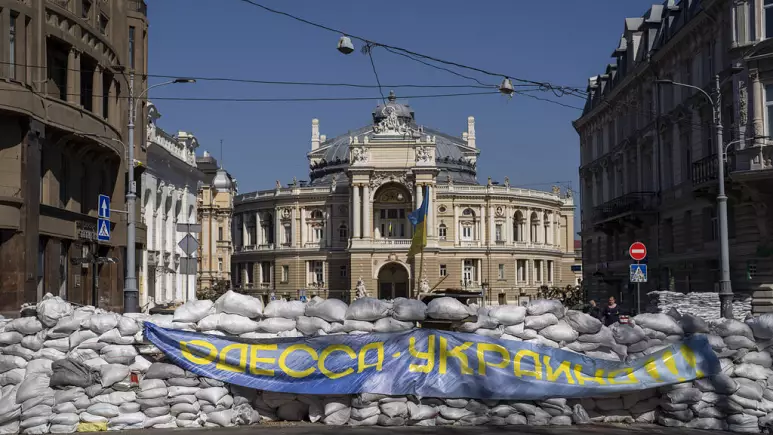A Ukrainian MP has claimed Russian missiles struck a key Ukrainian port Saturday morning, only hours after Kyiv and Moscow signed a landmark deal to unblock shipments of grain
Oleksiy Goncharenko, Odesa MP, claimed four "Russian Kalibr missiles" were fired at the southern port one hour ago, two of which were intercepted by Ukrainian forces.
He said there are wounded, without specifying how many people or how serious their injuries were.
On Friday, Ukraine and Russia signed an agreement to allow millions of tonnes of much-needed wheat and maize to be shipped from Ukraine over the Black Sea.
Ports on the sea, such as Odesa, are integral for staging these shipments.
Under the deal, which was brokered in Istanbul by Turkey and the UN, both Kyiv and Moscow agreed "not to attack" ships carrying grain as they sailed the heavily mined waters.
Goncharenko said there had been six explosions in the city of Odea and that its port had caught fire after the attack.
He added that the Ukrainian airforce was engaging Russian planes over the city in southern Ukraine.
Writing on Twitter, Goncharenko claimed "Putin [has] started to threaten [the] grain deal less than in 24 hours after its signing. He's weaponising everything."
Russia is yet to comment on the strikes and Goncharenko's claim that they are Russian missiles cannot be verified by Euronews.
Leaders of the African Union had welcomed the deal as their continent is heavily reliant on Ukrainian grain, which provides 40% of the wheat for the World Food Programme.
Ukraine accused Russian President Vladimir Putin of "spitting in the face" of the UN and Turkey by bombing Odesa port, saying Moscow would bear "full responsibility" if the agreement failed.
By firing missiles at Odesa, Putin "spit in the face of UN Secretary-General Antonio Guterres and Turkish President Recep Erdogan, who have made enormous efforts to reach this agreement", said Ukraine's Foreign Ministry spokesman Oleg Nikolenko.
Source: Euronews




